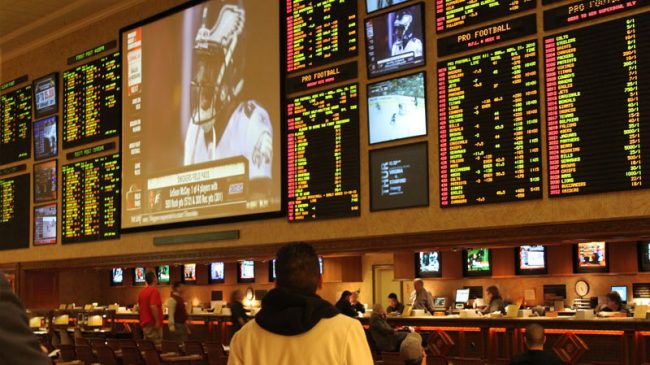Southern California is now home to two NFL teams. And it has long been home to pro baseball, basketball and soccer teams, as well as two of the biggest schools in college athletics.
But if you want to bet on those teams, you’ll have to go to Las Vegas. The federal government’s outdated and counterproductive prohibition on sports betting needs to end. Passed by Congress in 1992, the Professional Amateur Sports Protection Act bans states from introducing their own legal sports betting regimes, with Nevada being the sole exception.
Like many prohibitions, PASPA was passed with good intentions but produced disastrous results. A new Reason Foundation report shows the negative outcomes PASPA has produced and the host of benefits states and regions like Southern California would enjoy from its repeal.
Passed with the laudable intention of preventing game-fixing, PASPA’s original sponsors did not foresee what was to come. Instead of preventing corruption in sports, PASPA birthed a vast black market. Estimates suggest over $150 billion is bet on sports in America each year — 97 percent of it illegally.
Not only are billions of dollars being pushed into the shadow economy but the integrity of sports is actually more endangered because of this prohibition. With law enforcement unable to watch betting patterns on the illegal gambling taking place, the risk of game-fixing actually goes up.
PASPA also means Southern California is missing out on the tax revenue and job opportunities that would come with legalized sports gambling. According to Oxford Economics, legalizing sports betting nationwide would increase gross domestic product by $11 billion to $14 billion, create over 125,000 new jobs, and generate more than $4 billion in tax revenue.
Sports fans and leagues would also benefit. Research shows that fans are more engaged when they bet on sports. That engagement would likely translate into higher viewership and engagement in sporting events.
There is nothing to fear from legalizing sports betting, there are already numerous gambling avenues and there is no evidence to suggest legalizing sports betting would increase the incidence of gambling problems.
In the United Kingdom and Australia, where sports betting is legal and regulated, sports betting operators offer consumers services to manage or stop their betting. Repealing PASPA is not just sensible policy, it is in line with popular opinion. More than 60 percent of Americans agree sports betting should be legal, and 70 percent believe it should be regulated by the states, not the federal government.
Legislatures across the country are passing measures to legalize sports betting and offer their residents a safe, legal and regulated regime that brings jobs and tax revenue to their state. In July, California Assemblyman Adam Gray, D-Merced, announced the introduction of a statewide referendum for a constitutional amendment that would allow voters to legalize sports gambling in the Golden State if the federal law is changed.
“Whether we like it or not, Californians are already betting on sports through illegal and often unscrupulous websites in foreign countries,” Gray said in a statement. “It is time to bring this multibillion-dollar industry out of the shadows.
By prohibiting states from legalizing and regulating sports betting, there is a strong case to be made that PASPA exceeds the federal government’s constitutional authority, commandeering states to pursue its prohibitionist policy against the demonstrated preferences of the people.
Repealing PASPA would ensure the integrity of sports, generate jobs and revenue for California and put an end to another in the long line of failed prohibitions.
This column previously appeared in the Orange County Register.

